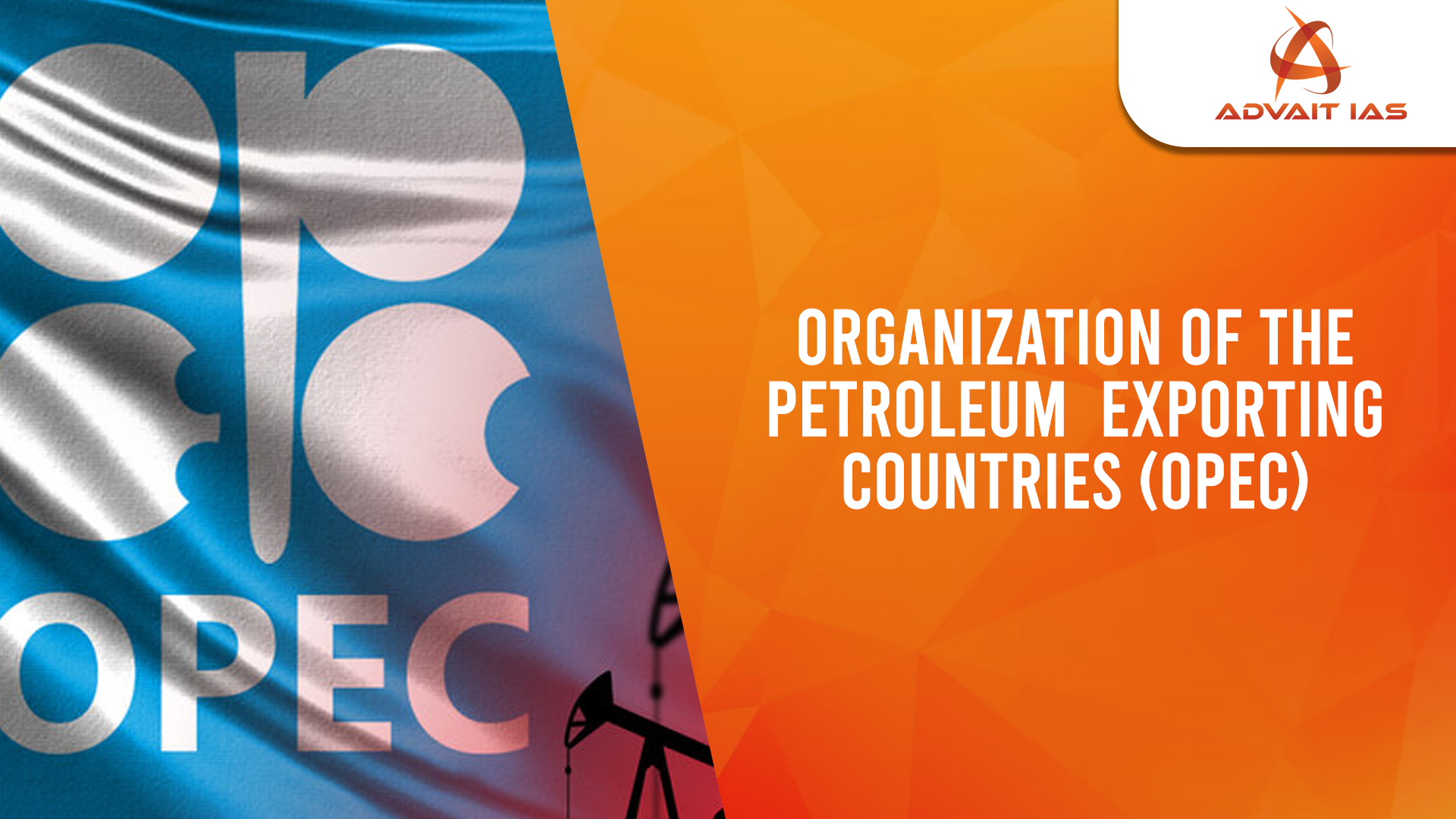OPEC (Organization of the Petroleum Exporting Countries)
- OPEC is a permanent intergovernmental organization of major oil-exporting nations.
- Founded in 1960 by Iran, Iraq, Kuwait, Saudi Arabia, and Venezuela.
- Currently, 12 member countries (after Angola’s withdrawal in 2024).
- Headquarters: Vienna, Austria.
- OPEC aims to coordinate and unify petroleum policies among member countries.
OPEC+ (Organization of the Petroleum Exporting Countries Plus)
- OPEC+ is a group of 23 oil-exporting countries that meets regularly to decide crude oil production levels to maintain global market stability.
- The aim is to coordinate and unify petroleum policies among member countries to secure fair and stable prices, efficient supply, and a fair return on capital.
- In 2024, Brazil was approved to join OPEC+, expanding the group’s global representation to a toal of 23.
Origin and Formation of OPEC+
- OPEC+ was formed in late 2016 to institutionalize cooperation between OPEC and non-OPEC oil-producing nations.
- The idea was to coordinate production cuts or increases to manage oil price volatility after the 2014 price crash.
- This collaboration was formalized as a framework to meet regularly and sustainably.
Members of OPEC+
- OPEC+ = 12 OPEC Members + 11 Non-OPEC Countries
- OPEC Members (12 countries):
- Algeria, Congo, Equatorial Guinea, Gabon, Iran, Iraq, Kuwait, Libya, Nigeria, Saudi Arabia, UAE, Venezuela.
- Note: Angola exited OPEC in January 2024.
- Non-OPEC Members (11 countries):
- Azerbaijan, Bahrain, Brunei, Kazakhstan, Russia, Mexico, Malaysia, South Sudan, Sudan, Oman, Brazil.
- OPEC Members (12 countries):






